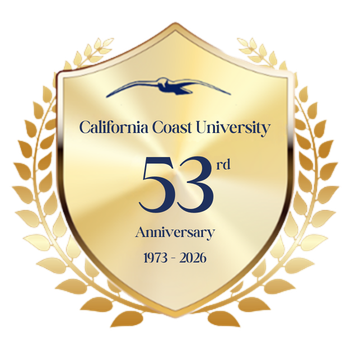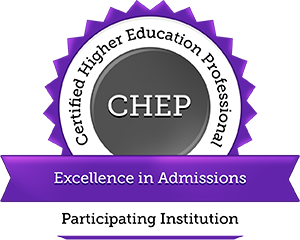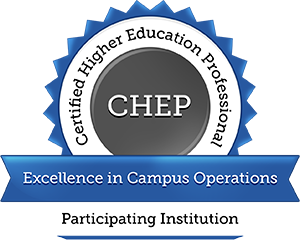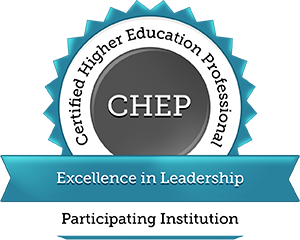|
BAM 402 |
Public Relations |
3 |
This course examines public relations as a values-driven management function focused on building productive, ethical, and mutually beneficial relationships between organizations and their key publics. Students explore foundational theories, historical development, social responsibility, and the use of emerging technologies and social media in contemporary PR practice. This course also examines the dynamic growth of global communications and the challenges it poses for public relations.
Course Objectives
Upon successful completion of this course, students will be able to:
- Examine the theoretical foundations, key terms, and historical development of public relations.
- Analyze the ethical and social responsibility issues that shape public relations practice.
- Evaluate best practices for using social media and emerging technologies in public relations.
- Assess the challenges and opportunities involved in the globalization of public relations.
- Demonstrate proficiency with academic writing related to public relations.
|
|
BAM 411 |
Human Resource Management |
3 |
Human Resource Management explores the fundamentals of human resource management and its significance to a company’s success. Examined, in detail, are HR functions such as recruitment, retention, appraisal, compensation, labor relations, development, and current trends in the field. Practical skills-oriented concepts and techniques are highlighted throughout the course, as is the emphasis on building and maintaining an engaged and productive workforce.
Course Objectives
Upon successful completion of this course, students will be able to:
- Identify and define human resource management, and describe major trends and best practices related to the field.
- Demonstrate an understanding of staffing and training issues related to human resource management.
- Develop an understanding of compensation plans and total rewards.
- Recognize the importance of employee and labor relations, social responsibility, ethics, and risk management as they relate to the field.
- Identify the issues of managing human resources on a global scale.
- Demonstrate proficiency with academic writing related to human resource management.
|
|
BCJ 100 |
Introduction to Criminal Justice |
3 |
Introduction to Criminal Justice aims to provide students with a general understanding of the criminal justice system’s response to crime in society. It is important to note that the general theme of this course involves the delicate balance between community interests and individual rights that criminal justice decision-making requires. This theme will be explored by examining the criminal justice process, focusing on how the system is structured to respond to crime.
Course Objectives
Upon successful completion of this course, students will be able to:
- Describe the nature and extent of crime and discuss the foundations of law and the criminal justice system.
- Examine law enforcement from the history of policing through to contemporary issues and challenges confronting the profession.
- Describe the role of the courts in the criminal justice system and the process of prosecution, criminal trial, and sentencing.
- Discuss the key aspects of corrections including its history, community and institutional corrections, prison life, and parole.
- Examine special issues in criminal justice related to juvenile justice, terrorism, human trafficking, hate crimes, and the #MeToo Movement.
- Demonstrate proficiency with academic writing related to criminal justice.
|
|
BCJ 230 |
Criminal Investigation |
3 |
Criminal Investigation aims to provide students with an overview of the criminal investigation field. Course topics include the fundamentals of criminal investigation, follow-up investigative processes, methods for obtaining information, and how to approach the investigation of different types of crimes.
Course Objectives
Upon successful completion of this course, students will be able to:
- Identify and define the study of criminal investigation and discuss the foundations of criminal investigation.
- Demonstrate an understanding of follow-up investigative processes and analyze the legal issues involved.
- Discuss best practices for obtaining information through interviews, interrogations, criminal intelligence and surveillance operations.
- Examine the various types of crimes related to people, property and national security.
- Demonstrate proficiency with academic writing related to criminal investigation.
|
|
BCJ 240 |
Procedures in the Justice System |
3 |
Procedures in the Justice System is organized around the theme of balancing the need to detect, investigate, prosecute, and punish crime against the constitutional commitment protecting the rights and liberties of individuals. This course is designed to help students develop a working knowledge of the procedures involved in the justice system and covers the fundamental principles and procedures employed throughout the legal process. Topics include factors related to investigating crimes, considerations and practices related to the procedural and prosecutorial processes, and the trial, sentencing, and appellate processes.
Course Objectives
Upon successful completion of this course, students will be able to:
- Describe the criminal justice process and the sources of criminal procedure.
- Demonstrate an understanding of the factors and requirements related to searches and seizures.
- Examine practices related to interrogations, lineups, and identifications.
- Evaluate the different remedies for constitutional violations.
- Examine the pretrial and trial process, sentencing, and appeals.
- Demonstrate proficiency with academic writing related to procedures in the justice system.
|
|
BCJ 351 |
Forensic Science |
3 |
Forensic Science provides an introduction to the field of forensic science as it relates to crime and terrorism. Students will examine best practices within the field including evidence collection, preservation, and analysis. The methods and science used to analyze physical evidence is presented. This course will also introduce students to the role of forensic science related to terrorism and homeland security.
Course Objectives
Upon successful completion of this course, students will be able to:
- Define forensic science and criminalistics including commonly used terms and key concepts.
- Examine the concept of trace evidence and pattern evidence related to fingerprints, shoeprints, document analysis, and firearms.
- Explore the concept of chemical evidence related to metals, gunshot residue, arson, and drugs of abuse.
- Explore the concept of biological evidence related to toxicology, biological fluids, and DNA typing.
- Assess the role of forensic science as it relates to terrorism investigation.
- Demonstrate proficiency with academic writing related to forensic science.
|
|
HCA 200 |
The United States Health Care System |
3 |
The United States Health Care System course is designed to introduce students to the organization, structure, and operation of the nation’s health care system. This course aims to help students effectively identify their present and future roles as consumer, provider, manager, decision-maker, and analyst. The course examines an overview of the health care system, causes and characteristics of health service utilization, the nature of wellness and disease, individual provider settings, financial and nonfinancial resources used and needed, and the measurement of quality of care.
Course Objectives
Upon successful completion of this course, students will be able to:
- Define health and healthcare key terminology, and analyze the role and process of healthcare in America.
- Describe aspects of employment in healthcare delivery including key personnel and the required education and training.
- Examine the various delivery systems in healthcare and discuss related legal, ethical, and political issues.
- Analyze issues in the healthcare industry regarding research, cultural competency, and international applications.
- Demonstrate proficiency with academic writing related to the United States healthcare system.
|
|
HCA 320 |
Essentials of Managed Health Care |
3 |
Essentials of Managed Health Care focuses on health insurance as it impacts the management of healthcare organizations. This course provides a systematic overview of the history of managed healthcare and health insurance in the United States, types of health plans and available payers, the provider network, utilization management, quality management, accreditation, Medicare Advantage, Medicaid managed care, and laws and regulations in health insurance and managed care.
Course Objectives
Upon successful completion of this course, students will be able to:
- Discuss the major forces shaping health insurance and managed care today.
- Examine the basic elements of health benefits coverage and provider payment options.
- Describe the basic components of utilization management for medical services.
- Explain the Medicare and Medicaid benefit structures.
- Identify key state and federal laws and regulations governing managed care.
- Demonstrate proficiency with academic writing related to the essentials of managed care.
|
|
HCA 340 |
Cultural Diversity in Health and Illness |
3 |
Cultural Diversity in Health and Illness promotes an awareness of the dimensions and complexities involved in interactions between health professionals and patients from diverse socio-cultural backgrounds. It examines different cultural perspectives regarding health, illness and health care that exists within American society by demonstrating traditional health beliefs and practices among selected populations. Emphasis is placed on the importance of having culturally competent health care professionals to better serve an increasingly diverse population.
Course Objectives
Upon successful completion of this course, students will be able to:
- Define and describe the importance of cultural and linguistic competence in healthcare.
- Examine the various health domains including health, healing, and familial traditions.
- Analyze trends in healthcare and describe current issues and barriers to healthcare.
- Discuss health care problems in various demographic groups.
- Demonstrate proficiency with academic writing related to cultural diversity in health and illness.
|
|
HCA 420 |
Medical Law and Ethics |
3 |
Medical Law and Ethics explores the study of medical ethics, or applied ethics, for healthcare professionals who often face dilemmas that are not experienced by the general population. The fast-paced growth of medical technology has made the study of ethics even more relevant. The study of bioethics, or biomedical ethics, refers to moral dilemmas due to advances in medicine and medical research. Since medical law and ethics are often interrelated, students need to have a clear understanding of both in order to protect themselves, their employer, and the patient. The study of ethics includes many questions for which there is no one answer.
Course Objectives
Upon successful completion of this course, students will be able to:
- Define medical law, ethics, and bioethics and examine why it is important to study them.
- Examine the legal environment of healthcare including the legal and court systems and essential laws for healthcare professionals.
- Describe issues related to the healthcare environment regarding liability, confidentiality, and the physician-patient relationship.
- Demonstrate an understanding of medical ethics and describe future trends in healthcare.
- Demonstrate proficiency with academic writing related to medical law and ethics.
|
|
MKT 121 |
Customer Service |
3 |
Customer Service focuses on building career success by applying proven principles that create customer satisfaction and loyalty. The text is skills-based and offers practical, immediately applicable information. It provides clear and concise guidance for developing the skills, attitudes, and thinking patterns needed to overcome many customer service challenges.
Course Objectives
Upon successful completion of this course, students will be able to:
- Define customer service and examine the factors that contributed to the growth of the service sector in the United States.
- Examine the skills required for success in the customer service field.
- Demonstrate an understanding of building and maintaining relationships with customers.
- Develop an understanding of best practices related to customer retention.
- Demonstrate proficiency with academic writing related to customer service.
|
|
MKT 310 |
Advertising and Promotions |
3 |
Advertising and Promotions will allow students to see a collective picture of integrated marketing communications. Focus is placed on business-to-business marketing concepts, international marketing discussions, brand management, and various advertising and promotional tactics. This is an integrated approach with a solid advertising core.
Course Objectives
Upon successful completion of this course, students will be able to:
- Describe and examine the foundations and role of advertising, promotion, and marketing.
- Analyze the communications process and examine the role of consumers, ad agencies, and other marketing communication organizations.
- Evaluate objectives and budgeting for integrated marketing communications programs and describe the process of development.
- Demonstrate an understanding of monitoring, evaluation, and control in measuring program effectiveness.
- Examine regulations, global applications, social, ethical and economic issues related to advertising and promotions.
- Demonstrate proficiency with academic writing related to advertising and promotions.
|
|
MKT 333 |
Marketing Management |
3 |
Marketing Management presents marketing management as a core business activity involving everyone in the firm, not just the marketing department, and is structured to improve individual, unit, and organizational performance as it continually adapts and adjusts to the marketplace of the 21st century. Topics covered include: the major challenges facing marketing today; virtual, digital, and social marketing management; analytics, metrics, and measurements available through new technologies; customer-centric and service marketing orientations; branding and brand equity; and global, ethical, legal, and sustainable marketing practices.
Course Objectives
Upon successful completion of this course, students will be able to:
- Define and examine issues currently impacting marketing management (i.e. global, ethical, sustainable, strategy, planning, and competition considerations).
- Discuss best practices for using information to drive marketing decisions.
- Evaluate the essential role of the product experience in marketing.
- Demonstrate an understanding of the key elements of pricing decisions and delivering the value offering.
- Examine the role of promotion and advertising in communicating the value offering.
- Demonstrate proficiency with academic writing related to marketing management.
|
|
MKT 425 |
Social Media Marketing |
3 |
Social Media Marketing explores the growing popularity of using digital technologies to reach consumers. This course aims to further students’ working knowledge on the four zones of social media (community, publishing, entertainment, and commerce). The course explores how social media can be employed to build brands, conduct business, support causes, rally the masses, and forge and maintain relationships.
Course Objectives
Upon successful completion of this course, students will be able to:
- Summarize the process of social media marketing strategies, and describe key concepts related to this process.
- Examine social media consumers and the dynamics of online communities.
- Analyze the four zones of social media including social community, publishing, entertainment, and commerce.
- Examine social media data management and measurement.
- Demonstrate proficiency with academic writing related to social media marketing.
|
|
PSY 102 |
Introduction to Psychology |
3 |
Introduction to Psychology introduces the methods and findings of contemporary psychology and investigates how psychological science can be applied to the world around us. Emphasizing the need for scientific and critical thinking, topics include a survey of biology and behavior, sensory processes, human development, learning and motivation. Emotion, personality, psychological disorders, therapy, and social interaction are also examined to provide students with a solid understanding of the facts, principles, and theories which make up the field of psychology.
Course Objectives
Upon successful completion of this course, students will be able to:
- Discuss the historical foundations of the field of psychology, the function of the brain on behavior, stages of human development, and psychology as a scientific field of study.
- Demonstrate an understanding of processes related sensation and perception, states of consciousness, conditioning and learning, memory, cognition, language, and intelligence.
- Examine motivation and emotion, sexuality and gender development, and personality development.
- Evaluate psychological disorders and psychotherapies.
- Examine key concepts related to the fields of health psychology and applied psychology.
- Demonstrate proficiency with academic writing related to the field of psychology.
|
|
PSY 116 |
Psychology of Gender |
3 |
Psychology of Gender examines the biological, cultural, and historical factors that influence the development of gender roles and identities. Stereotypes of masculinity and femininity are examined, and the impact that these ideas have on our lives at the personal, social, and institutional levels are explored.
Course Objectives
Upon successful completion of this course, students will be able to:
- Define sex, gender and gender identity, and discuss how gender movements have shaped history.
- Examine biological, social, cognitive, emotional, and communicative factors related to gender development.
- Evaluate issues related to gender stereotyping, discrimination, and power.
- Describe the factors related to gender that affect health and wellbeing.
- Demonstrate proficiency with academic writing related to the psychology of gender.
|
|
PSY 150 |
Health Psychology |
3 |
Health Psychology examines the correlation between health, illness, and optimal health care from a behavioral science approach. The relationship between health and behavior is explored through an integration of foundational theories, relevant research, and “real-world profiles.”
Course Objectives
Upon successful completion of this course, students will be able to:
- Describe and discuss the meaning and foundations of health psychology including the psychological and ethical aspects related to the field.
- Analyze issues in behavioral health including the affects and impact of drugs and alcohol, eating, and exercise.
- Describe the relationship between behavioral factors and strategies related to chronic disease, stress, pain, and illness.
- Examine future trends and challenges in health psychology.
- Demonstrate proficiency with academic writing related to health psychology.
|
|
PSY 220 |
Developmental Psychology |
3 |
Developmental Psychology introduces students to the scientific study of patterns of change and stability that occur as we move through the process of human development from conception to death. Various theories of development will be presented and an emphasis on physical, emotional, cognitive, and psychosocial changes throughout the lifespan will be discussed.
Course Objectives
Upon successful completion of this course, students will be able to:
- Define human development, discuss how it is studied, and examine the major theories and stages of development from infancy to late adulthood.
- Examine the genetic, environmental, and physical factors related to the varying developmental stages.
- Evaluate the factors of sensation, perception, cognition, memory, learning, intelligence, creativity, and language related to the varying developmental stages.
- Demonstrate an understanding of the self, personality, social and moral development, gender roles, sexuality, emotions, attachment, and relationships related to the varying developmental stages.
- Demonstrate an understanding of unique factors related to developmental psychology, psychopathology, death, and bereavement.
- Demonstrate proficiency with academic writing related to developmental psychology.
|
|
PSY 380 |
Personality Theories |
3 |
Personality Theories introduces students to key scientific perspectives on human personality. This course examines major theoretical approaches, including psychodynamic, psychoanalytic, behaviorist, phenomenological, biological, and cognitive frameworks: to understand how personality develops, functions, and is assessed. In addition, this course emphasizes research methods and contemporary assessment practices used to study personality, fostering connections between theory, empirical evidence, and real-world applications.
Course Objectives
Upon successful completion of this course, students will be able to:
- Analyze the foundational principles underlying major personality theories within cultural and social contexts.
- Compare and contrast psychodynamic and psychoanalytic approaches to personality development.
- Apply behaviorist and phenomenological concepts to interpret observable patterns of human behavior.
- Evaluate biological and cognitive approaches in explaining personality structure and variation.
- Examine methods used in personality research and psychological assessment.
- Demonstrate proficiency with academic writing related to theories of personality.
|
|
PSY 408 |
Abnormal Psychology |
3 |
Abnormal Psychology offers students an integrative approach to the study of psychopathology, drawing on contributions from various disciplines and theoretical stances. Through clinical case studies, the psychosocial and psychophysiological factors of abnormal behavior are examined, along with the exploration of prevention efforts and research-based advancements in the field.
Course Objectives
Upon successful completion of this course, students will be able to:
- Define abnormal behavior and describe the historical conceptions of abnormal behavior.
- Demonstrate an understanding of the various types of psychological disorders, their causes, and types of treatment.
- Examine the processes of clinical assessment, diagnosis, and research in psychopathology.
- Evaluate the legal and ethical issues that pertain to mental health services.
- Demonstrate proficiency with academic writing related to abnormal psychology.
|
.png)










.jpg)






